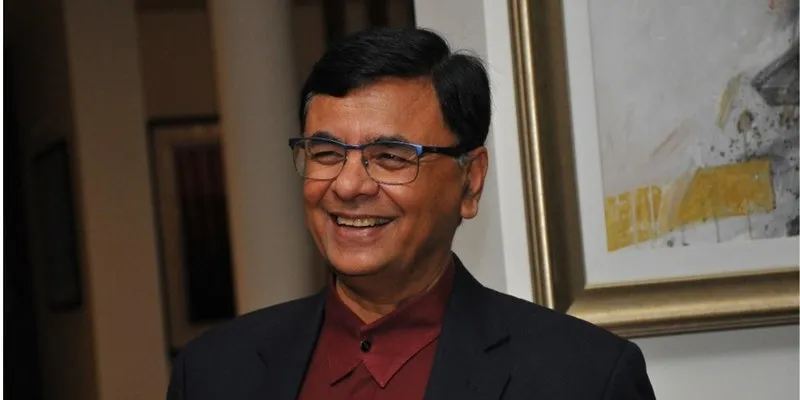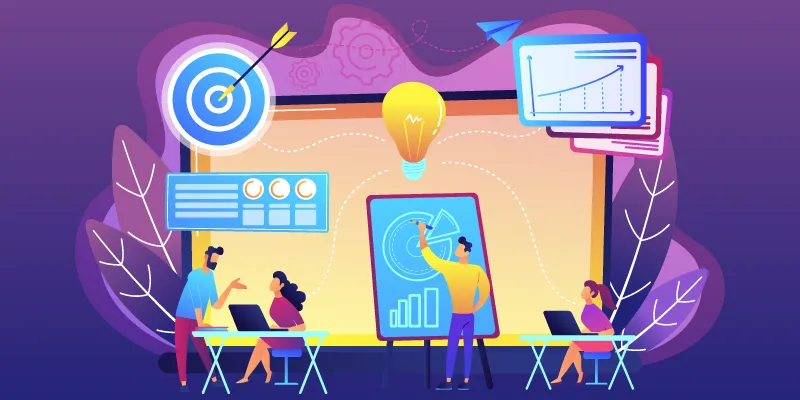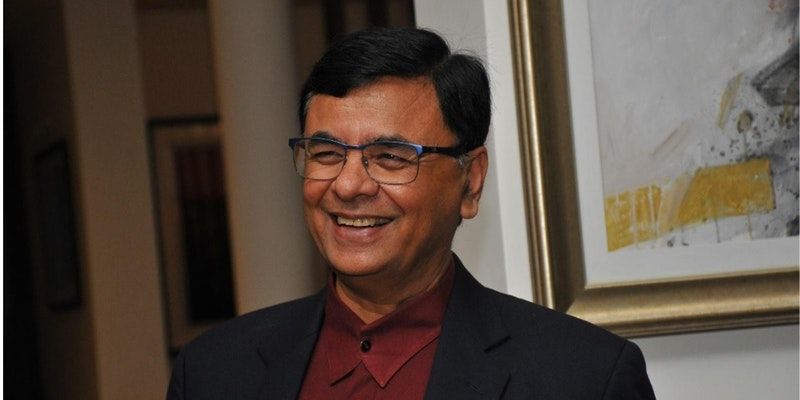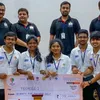The man who worked with Steve Jobs, Michael Dell, and John Chambers reveals why innovation is the cornerstone of startup success
Dr Vivek Mansingh, partner and mentor at Gurugram-based early-stage VC fund YourNest, has had a long and successful journey. In an interview with YourStory, he speaks about the importance of innovating, and why startups and companies should ‘think of innovation as oxygen for their organisations’.
“I believe that innovation is a skill, a combination of art, science, and creativity that can be learned by individuals and companies,” says Vivek Mansingh, a partner and mentor at Gurugram-based YourNest, an early-stage venture capital fund.
Based in Bengaluru, Vivek Mansingh has had an incredibly successful global career of more than 30 years across two continents. He began his career in the US as a scientist at Hewlett Packard in Cupertino, and then moved to Fujitsu in 1991 as a Director of Marketing & Sales in California. In 1997, he founded ATTI, a subsidiary of Aavid, and then sold the successful company in the Bay Area. Upon returning to India in 2001, he worked at two US and India startups that exited to Philips and Oracle, headed Dell's research and development centre, and served as President for Cisco Systems' Collaboration and Communications Technology Group managing global teams. During his stint, he worked directly with the likes of Steve Jobs, Michael Dell, and John Chambers on innovation among other things.
Vivek holds six US patents and is a gold medal-winning engineer from NIT Allahabad. He obtained a PhD from Queen's University, Kingston, Canada, in 1986 and completed an Executive Business Management Program at Stanford University in 1996. In an extended interaction with YourStory, Vivek reveals how critical innovation is for startups in India and why the next unicorns will come in the B2B space.

Vivek Mansingh has worked directly with the likes of Steve Jobs, Michael Dell, and John Chambers on innovation among other things.
Edited excerpts of the interview:
YourStory: Can you take us through your innovation journey?
Vivek Mansingh: My innovation story is very personal and interesting. My tryst with innovation started just after my PhD while I was in Silicon Valley. I gave myself a goal to be financially independent by the age of 40. The path I chose to achieve this goal was innovation. After a lot of hard work, I invented an instrument, used for hardware system design, patented it and licensed it to a Boston company. The instrument was sold to literally every company that designed electronic systems around the world. Thanks to the patent protection, I earned royalty on this invention for 17 years, and became financially independent.
My other five patents came from HP and Fujitsu while I was working at the Silicon Valley. After that, I moved to a management role, and though involved with leading large innovation programmes at Dell and Cisco, and engaged with engineers at nuts-and-bolts level on innovation, decided not to file patents in my name. Otherwise, I would have at least 30 patents.
If I look back at the biggest achievements of my life, innovation will be very much on top.
YS: Looking at the startup ecosystem and its changing landscape, how does innovation play a critical role?
VM: Innovation has been a fundamental part of economic growth in the last 100 years. Umpteen successful companies have been built on the foundation of innovation; a large number of very successful companies have been destroyed by the lack of innovation. Ensuring the DNA of innovation in their companies is the highest priority for 92 percent CEOs.
Big or small, every company needs the magic of innovation. In terms of startups, there is always some innovation in the organisation itself as a startup provides a better solution for an existing problem. The innovation can be technology-based, business model-based, process-based, or in any other form. But there has to be some kind of innovation. The critical question is: does this innovation provide the startup a sustainable and BIG competitive advantage to build a successful company?
In B2C startups, India has done fairly well with examples like Flipkart, Paytm, MakeMyTrip, Naukri, Ola, and many others. These companies have done a great job. However, by and large, these startups have relied on a successful global model. But they have done an amazing job of innovation in their ability to compete with the best in the world with solutions built from India. In addition, there has been good innovation in optimising the solutions for India.
When it comes to B2B, there are a few differences and this is the space where YourNest largely focuses. In the B2B space, the Indian market is not large enough, so startups have to look at global markets and eye a globally sustainable competitive advantage from day one. They may start by selling the product in India and later to the US and the rest of the world. But from day one, their thinking - in terms of product, technology and business model - has to meet global standards.
If you take India-based successful B2B companies like inMobi, Freshdesk, Zoho, Dhruva, and upcoming startups like Uniphore, KaHa Technologies (YourNest portfolio companies), to name a few, all these companies are designing solutions to address global markets from the early stage. Hence, the value proposition of the product and solution has to be based on deep innovation.
Another class of B2C startups is where they are offering products to global markets. YourNest portfolio company Miko is a good example. They are building AI-based learning and companion robots for small kids. The product already has traction in India and the Middle East, and will be launched in the US and the UK soon. Again, the innovation quotient for this product is world class from the early stage.
Therefore, deep innovation is critical for startups, but even more so for B2B. Of course, these innovations, when properly packaged and filed, become patents.
YS: What are the gaps that India faces when it comes to the patent ecosystem?
VM: Countries like the US, China, and Japan file around 50,000 patents in a year while India files somewhere around 2,000 patents per year. Therefore, at this moment, we are far away from any of these leading countries. The good news is that we are now moving in the right direction and our innovation ecosystem is much stronger than reflected by the number of patents filed in India.
In my opinion, both startups and large companies in India need to start deep innovation and patent these. We have a healthy ecosystem of about 20,000-30,000 startups. If half of these file even one patent each, we should see 15,000 patents filed in India in the next few years. Our large companies should seriously consider innovation as oxygen for their organisations. If they do, thousands of patents can come from them.
Another important point to understand is that a patent is country-specific and needs to be filed country by country. So, if a large market for a product is in the US, even an Indian company may first file a patent in the US rather than India, hence reducing the number of patents filed in India.
Another factor, most MNC R&D centres in India file patents in their own respective countries for innovation coming out of these centres. These could be several thousand patents every year alone.
Hence, one should not judge India’s innovation prowess by looking at patents filed in India. The ecosystem is much better and bigger.
YS: What is your view on patents for startups? Realistically, at what stage should they file for a patent?
VM: I strongly believe that startups need to innovate hard and file patents as early as possible. They need to focus on filing patents in their core areas. A patent allows protection for about 17 to 20 years, after which, patents come into the public domain.
Since patents are country-specific, my suggestion to founders is to file a patent in the country where the innovation was done in addition to countries that are large markets for their products.
YS: A lot of startups believe that filing a patent is not a strategic decision but a financial decision. What do you have to say about that?
VM: As mentioned earlier, patents are granted country by country. So, if your market is in the US, Germany, the UK, Japan, China, and India, one has to file a patent in each country. Although in India patent cost is a couple of thousand dollars, in the US and other countries, it is around $10,000 for each country. If one has to file multiple patents in multiple countries, the cost can become prohibitive for a startup.
My suggestion to startups is to not go by the number of patents, but file patents in the core area of technology that differentiates their solution and gives them a significant and sustainable competitive advantage.
A good patent with solid claims can become an invaluable differentiator and one such patent can be better than 10 ordinary patents. To elaborate on claims, a patent claim is the most important part of a patent. It defines exactly what is claimed by the invention and therefore what is sought to be protected.
In addition, patents make startups more valuable in the eyes of investors and partners.
YS: Can you provide some examples of how have you helped your startups innovate?
VM: During my stints as head of R&D at Dell and Cisco, I drove innovation across these companies. These practices were so successful that they were adopted globally. I understand how innovation DNA can be institutionalised and that is what I do with portfolio companies of YourNest.
The first step is to encourage our founders to take innovation seriously from early stages of the company and file patents.
I am a big believer in collaborative innovation. We engage with startups to identify their core technology areas, go deep in competitive solutions, do out-of-the-box thinking to bring new ideas to the table, brainstorm on each potential idea vigorously, and finally come up with some unique innovative ideas.
People sometimes associate innovation to a single person; however, collaborative innovation is much more productive.
For instance, one of YourNest’s portfolio companies is Golflan. They are developing deep technology products to improve the golf experience. It shares a full 3D map of the golf course with golfers to enhance their game. In addition, their AI-driven features increase efficiency of golf courses. It is a fairly complicated hardware-software deep technology product where innovation was done together by Golflan team, myself, and a YourNest technology director. It is a very successful and amazing product installed across some top golf courses around the world.
As many golf courses do not use a cart, Golflan wanted another handheld product with the same features. After understanding various factors like the product requirement, competition, our core competencies to name a few, we came up with a mobile product with a competitive pricing. Again, this was true product innovation done collaboratively by Golflan and YourNest teams. I see phenomenal success for this product around the world.

Miko is a beautiful innovation from India and is now heading for the global market. One of our associates at YourNest has worked closely with CTO and CEO of Miko to innovate and patent some key technologies. As the product is ready to be launched in the US, I have worked closely with the founders to drive innovation that helps in localising the product for US markets.
Another portfolio company Lavelle Networks is working in the SDN area (software-defined network). We are working closely with the founding team to help them innovate and patent some critical pieces of technology that can give them a sustainable technology edge.
In a SaaS startup, Wolken Software, working closely with the founders, we were able to innovate on a strong base platform makes the product stand out in terms of new features, scalability, and deployment agility. This company has been able to win global customers at this early stage due to this hardcore innovation.
At EnCloudEn, I have asked the CTO to not come to office for a week and dedicate the time to innovation. We will spend time to go deep into core technology and competitive state-of-the-art technologies, and then bring out-of-the-box ideas for their product. The goal is to come out with a couple of patentable ideas in that week that can be drilled down further to come up with solid patents.
Many YourNest portfolio companies have done tremendous innovation, acquiring multiple patents even at their early stages. KaHa Technologies (23), Uniphore (19), Orbo (10), Miko (1), (5 more in the pipeline) and SSTS (4), to give a few examples.
YS: What do you think is the next big thing for India’s startup ecosystem?
VM: India is on the right path. In phase one, companies like Infosys and Wipro established themselves as global companies of magnificent size. In the second phase, our B2C companies like Flipkart, Ola, and Paytm have set global standards by becoming very successful unicorns. We will continue to see B2C successes, but I think India is now ready for good number of B2B successes. I believe you will see 30 B2B unicorns from India in the next 10 years. These companies will be globally successful based on deep innovation done right here in India.
YS: You have had a long career and are now extensively involved with startups. What are you planning next?
VM: My personal goal is to help create at least three B2B unicorns from India in the next few years. I would also like to see YourNest become the best deep tech Indian fund in early-stage funding, and nurture some global successes.
On the nonprofit side, I am on the board of Janaagraha and Dream A Dream, have adopted a hospital and built ICU and maternity wards there, run a school for handicapped children, a school for less privileged, and a free programme for corrective surgeries for handicapped children.
Lots to do!
(Edited by Teja Lele Desai)










